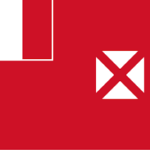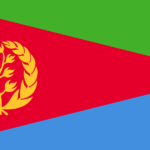Fees for registering Georgia trademarks
Service Process
Trademark registration time
The current trademark regulations in Georgia are mainly based on the Trademark Law promulgated on February 4, 1999. The Patent Office is responsible for managing intellectual property affairs and the official language is Georgian. Trademark exclusive rights need to be obtained through registration. Trademark registration is not mandatory, but in order to protect the trademark or renew it, it must be registered in accordance with the law. Georgia adopts the principle of "application first" for trademark registration, but for well-known trademarks, trademark rights can also be claimed based on "prior use".
Georgia is a signatory to international intellectual property treaties such as the Nice Agreement, the Paris Convention, and the Convention Establishing the World Intellectual Property Organization. It is also a member of the Madrid Protocol, so trademark registration can be handled through "single country registration" or "Madrid international registration".
Trademark Registration Process
Currently, Georgia adopts the Nice Classification 11th edition of product and service descriptions and accepts applications for multiple categories in one form. The elements that can be registered as trademarks in Georgia include: text, proprietary terms, letters, numbers, sounds, graphics, three-dimensional logos, etc.
If the applicant is not of Georgian nationality, it is recommended to entrust a specialized agent in their home country to handle the matter. The basic materials required for trademark application are:
1. Trademark design;
2. Specific categories and product/service items;
3. Name and address of the applicant;
4. Power of attorney;
5.If priority is declared, priority proof documents and corresponding Georgian language translations must be provided.
The main process for applying for registration of a Georgian trademark is: application acceptance examination announcement approval issuance. The examiner will conduct formal and substantive examinations on the application. Formal review mainly examines whether the application requirements and classification information comply with regulations; The substantive examination includes the examination of the distinctiveness of the trademark, whether it violates the prohibition and prohibition clauses, and whether it conflicts with the prior trademark. If the examination fails, a rejection notice will be issued and the applicant will be required to respond within the time limit specified in the rejection notice. If the substantive examination passes, it will be arranged for public announcement. Three months from the announcement date is the objection period, during which any interested party or prior rights holder may raise objections. The main reasons for raising objections are:
1. Conflict with prior trademarks, such as owning a prior registered trademark;
2. The trademark lacks distinctiveness;
3. The trademark has adverse effects;
4. Malicious registration;
5. The trademark is a geographical name;
6. Conflict with other prior rights, such as design, personal name, etc.
If there are no objections or objections are not valid during the announcement period, registration can be approved and a registration certificate can be issued. If everything goes smoothly, trademark registration in Georgia takes 14-17 months, and the applicant can pay an additional fee to expedite the examination; If there are any objections or rejections encountered during the process, the time will be extended.
Trademark registration materials
The Georgian trademark is valid for 10 years after registration, starting from the date of registration; Renewal can be processed within 12 months before the expiration date, with a grace period of 6 months; The renewal is valid for 10 years.
The invalidation or revocation application after trademark registration can generally be filed in accordance with the following provisions of the Georgian Trademark Law:
1.Article 27, Paragraph 1: (1) The trademark owner voluntarily applies for revocation. (2) The trademark owner (individual) has died and there is no heir or designated donee; The trademark owner disappears. (3) If a trademark is approved for registration through expedited examination, it will be revoked if it conflicts with prior trademark rights that did not pass the expedited examination.
2. Article 27, paragraph 2: (1) Not using revocation for five consecutive years; (2) The registered trademark has become a common name in the industry; (3) The use of registered trademarks causes consumers to misunderstand the type, quality, price, origin, and other characteristics of the goods.
3.Article 28, Paragraph 1: (1) Malicious registration; (2) The trademark owner's trademark has been maliciously registered by their agent.
Start Your Trademark Business
Start Registration

do not understand? Contact us

do not understand? Contact us

do not understand? Contact us

do not understand? Contact us


 Georgia
Georgia